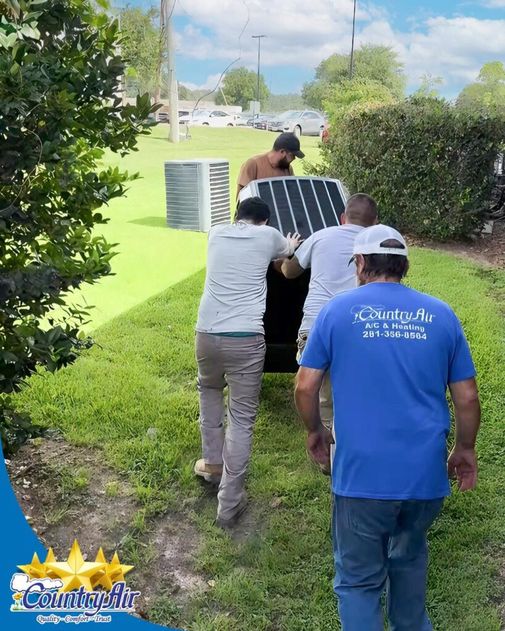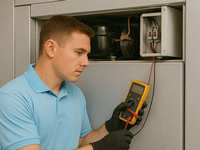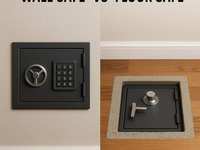- Categories :
- More
To Damper or Not to Damper: When Should You Use an AC Damper?

It’s not a good idea to spend a lot of time opening and closing your home’s cooling and heating air vents. You’d think it would be an energy-saving measure, but it reduces airflow efficiency and can even cause damage to your HVAC system. However, this rule doesn’t apply to HVAC dampers.
Dampers are rarely recognized as important components in cooling and heating systems; we are more familiar with air filters, compressors, and vents. But dampers are workhorses that can maintain temperature control in your home or office.
The AC damper is a crucial component of the HVAC system that controls the flow of cool air to specific areas of your house, allowing you to adjust the air temperature. This ductwork valve or shield regulates airflow and can be manual or automatic.
Automatic dampers can be controlled by a thermostat.
Manual dampers are hand-adjusted using a lever, knob, or valve.
Benefits of Using AC Dampers
Dampers are more efficient than room vents at directing airflow. This can also reduce hot and cold spots in your home. Damper regulation:
Increases energy efficiency and lowers energy bills
Reduces the strain on your AC system, which extends HVAC lifespan
If you have a two-story home, upper-level dampers should be open during summer and closed during winter. Opening dampers during the summer months distributes cool air evenly to the upper levels. In winter, closing the dampers allows heat to rise naturally, distributing warmer air throughout the upstairs. Opening the dampers in the summer also helps prevent overheating in homes with large windows, as well as reduce the amount of heat rising in homes with high ceilings.
Types of AC Dampers
There are several types of ductwork dampers.
Blade dampers – Two fan-type blades open and close to control airflow.
Butterfly dampers – They look like tiny butterflies sitting on top of your ductwork. They guide the airflow in one direction and are easily adjustable.
Inlet vane dampers – These look like tiny doors that open and close. They don’t direct airflow, but control the air pressure movement throughout your HVAC system.
Louver dampers – Louver dampers can be adjustable, fixed, or a combination. These dampers are compatible with several ductwork sizes and are popular because they are high-quality and more dependable.
Other dampers used in HVAC systems include backdraft dampers, fire dampers, smoke dampers, guillotine dampers (usually used during maintenance), and volume control dampers.
Dealing With Dampers
Not every home’s HVAC ductwork includes dampers, but some houses have several.
HVAC dampers are located in the ductwork’s air supply trunks. (Supply trunks are usually metal and rectangular.) If you have exposed ductwork, look at all the runs (The “runs” are the channels of ducts that distribute air throughout the home. They connect the HVAC to the zones.). Check to see which runs have dampers. Dampers in every run are best for air balance and temperature control.
Some but not all dampers have labels that easily indicate “open/closed” or “summer/winter.” To tell if your HVAC damper is open or closed, check the airflow. Strong airflow signals an open damper; no or weak airflow can indicate the damper is closed.
Usually, an open damper appears parallel to the ductwork, and a closed damper appears vertical or perpendicular. If you can see through the damper opening, it’s open; if you hear a weak hissing sound, the damper is probably partially closed.
Dampers are constructed of fiberglass or heavy cardboard and have a handle that allows or cuts off airflow. Some HVAC systems are designed to accommodate closed dampers, but if not, completely closing dampers restricts airflow and can damage the unit. Damper designs can also vary according to brand.
Damper Assessments & Installations: Country Air
If you’d like this valuable feature, damper installation should be done by your Tomball-area HVAC professional. Checking dampers should also be included as part of your HVAC maintenance service agreement.
Our air conditioning and heating professionals receive many questions about HVAC dampers and how to use them.













